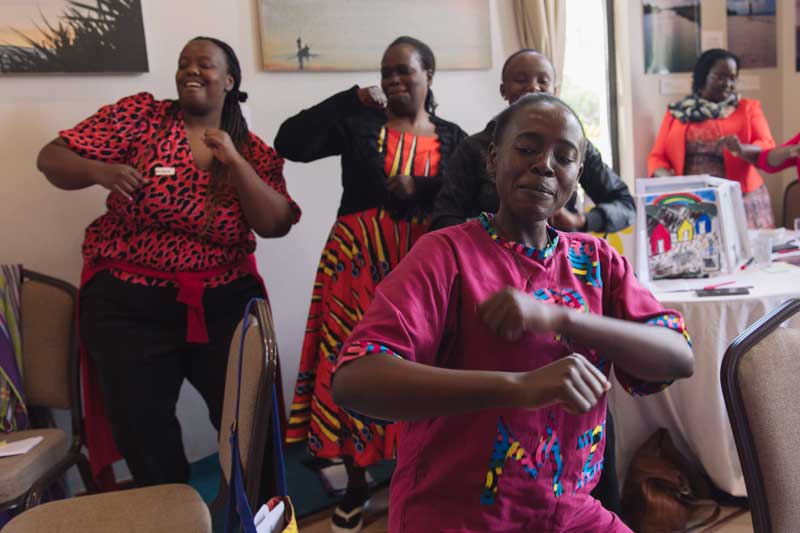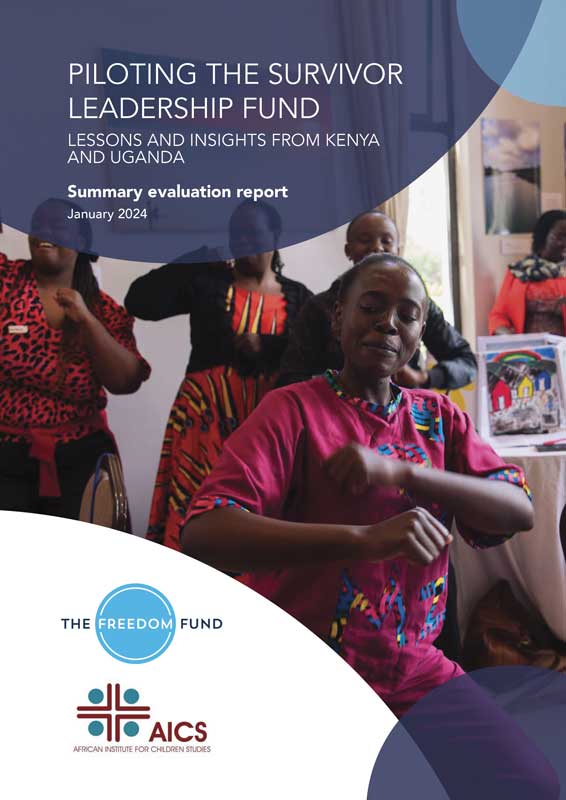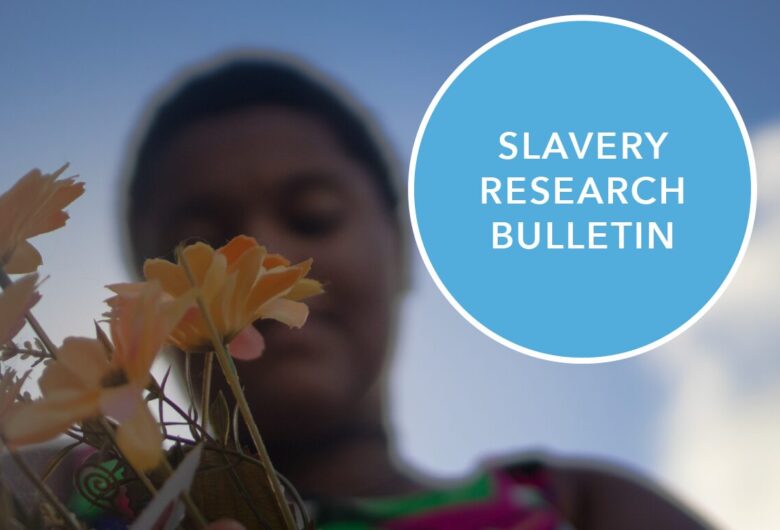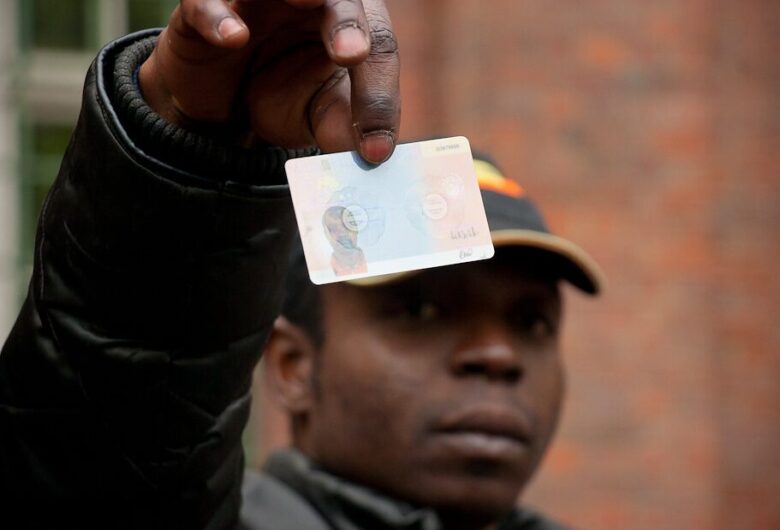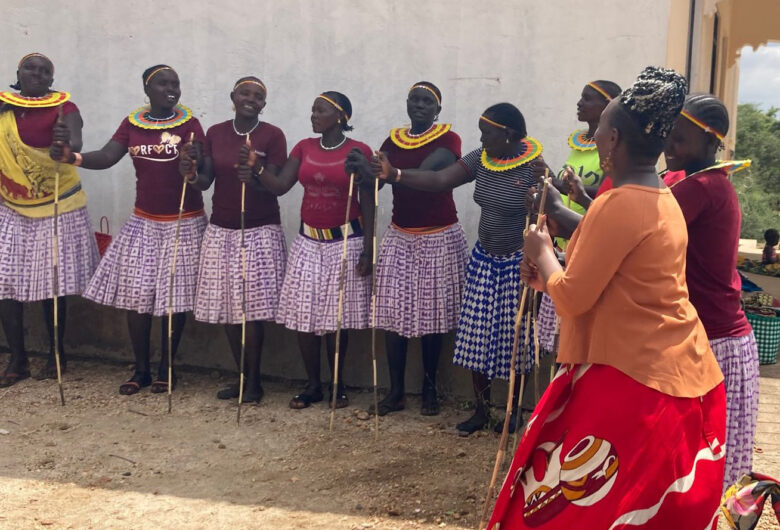Ending modern slavery requires the shifting of power and resources to those who are most affected – survivors and their communities. This is the reason we launched the Survivor Leadership Fund (SLF) in 2021, an innovative Fund that provides unrestricted grants to grassroots organisations led by people with lived experience of exploitation. Since its inception, the SLF has supported 69 survivor-led organisations in East Africa, Southeast Asia and Latin America, providing grants of up to $20,000 for organisations to use as they see fit.
Two years on, a new report looks back and evaluates the Fund’s impact and identifies its unique opportunities and areas for growth. It also demonstrates the success of the Fund’s trust-based and inclusive funding model in both reaching and supporting survivor-led organisations. The report, based on an evaluation of the first round of funding in Kenya and Uganda, examines the experience of grantees throughout the grant-making process, and highlights some of the important components of the SLF, as identified by grantees. These include the straightforward and accessible application process, minimal due diligence and reporting processes, and unrestricted funding. Crucially, it also highlights the flexibility, trust and agency that are at the heart of the SLF model.
“…the fact that we were given funds unrestricted… it gives you more power and to me, it gives better results than restricted funds,” said an SLF grantee.
Trusting survivor leaders to define their own priorities and distribute resources accordingly not only enables them to respond to the true needs of their organisations and communities, but also supports the shifting of power towards survivor leadership. Interestingly, the evaluation finds that survivors and community members were more involved in decision-making associated with the SLF grant than with other funding, suggesting that such grants can also support inclusion and community-led decision-making.
The report also demonstrates the variety of ways in which the grantees used their funding. These included renting offices and buying office equipment, capacity building, networking and emergency support for survivors including accommodation, psychosocial support and legal advice. Many grantees had not previously received unrestricted funding, and the vast majority of organisations reported that the grant allowed them to invest in initiatives that they would not have been able to fund otherwise. A common theme across the grantees was the use of funds to invest in other survivors – in their recovery, education, employment and health, as well as supporting them to become leaders in their communities.
“We had never received major funding before SLF. With the unrestricted nature of SLF, meaning that the agreement was not cast on stone, we could do anything that supports the organisational development to individual capacity building, as well as community work and survivor leadership movement…” said an SLF grantee
Grantees also noted the SLF’s impacts beyond funding, such as connecting grantees and providing opportunities to share knowledge and experiences with each other, resulting in ongoing collaboration between some organisations. In this way, the SLF supports the growth of a survivor-led movement, primarily by resourcing survivor-led organisations, but also contributing to a sense of connection across organisations.
Grantees also provided critical and constructive feedback on the SLF, with some highlighting the need for greater clarity in funding processes and many raising the issue of sustainability associated with a one-off grant. As the SLF continues to expand and reach more survivor-led organisations around the world, improvements will continue to be made in grant structure, decision-making processes, reporting and support to grantees, to ensure the initiative is effectively supporting survivor-led organisations to carry out their important work.
Beyond the SLF, grantees also reflected on the need to continue reshaping donor-grantee relationships, with a need to balance grantee autonomy and accountability, and for philanthropy to to shift away from control and towards a sharing of power. While still in its early, learning and developing stages, the SLF seeks to contribute to this shift and build more equitable and inclusive grant-making practices.
Looking to the future, we hope to support many more survivor-led organisations and communities affected by exploitation. Our goal is to fund at least 300 survivor-led organisations by 2030 to support the growth of diverse anti-slavery movements led by lived experience.
Click below to access the report!
Photo: Participants at the two day Survivor Leadership Fund convening in Nairobi of all seven survivor-led frontline organisations that receieved a grant in the East Africa round of the fund. Credit: Sarah Waiswa/The Freedom Fund

